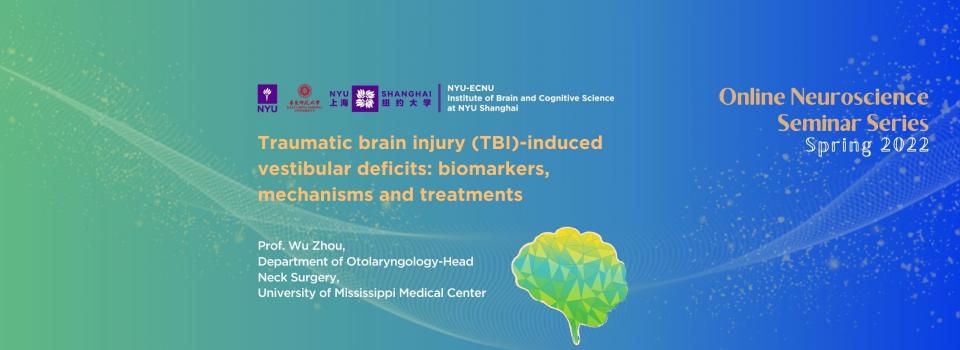
Host: Prof. Aihua Chen, East China Normal University
Abstract
As air-filled structures, the ears are among the most frequently damaged sites following exposure to blast overpressure waves, such as that produced by explosive devices. Blast victims often report vestibular symptoms in days or weeks after blast exposure and persistence of some symptoms months or even years after the exposure. However, few studies have addressed the impact of blast waves on the vestibular system, indicating a critical knowledge gap in developing effective prevention, diagnosis and treatment programs of vestibular deficits in blast victims. The overarching goal of the project is to address this important need by elucidating the mechanisms underlying the blast-induced vestibular injury. Over the past years , we have developed a novel blast injury rat model. Different from current animal models that usually use open-field explosion or shock tubes that deliver blast waves to the entire body or the whole head, in our new model, blast waves are delivered primarily into the external ear canal of rats. This new model not only avoids blast-induced damage to other air-filled organs such as lungs and intestines, but also allows us produce consistent and repeatable injury of the vestibular end organs. We examined inner ear histopathology, single unit vestibular afferent responses to head rotation/translation, and the rotational/translational vestibulo-ocular reflexes (VOR) following blast exposure. Our results suggested that blast-induced vestibular injury is complex in nature and involves a combination of acute and progressive injury at all levels spanning from hair cell damage in the periphery to neuroinflammation in the brainstem vestibular nuclei. Ongoing studies will further elucidate the mechanisms underlying blast-induced vestibular deficits and provide essential information for early diagnosis and targets for intervention.
Biography
Dr. Wu Zhou graduated from University of Science and Technology of China and got his Ph.D in Neuroscience from the University of Rochester, School of Medicine and Dentistry. He is now Professor and Director of Research Division in the Department of Otolaryngology-Head and Neck Surgery at the University of Mississippi Medical Center. For the past decades, his research program has been funded by the National Institute of Health to investigate the neural mechanisms underlying vestibular and oculomotor functions in animal models (rodents and monkeys) and human subjects. Recently, his research focuses on understanding and treating vestibular deficits resulted from traumatic brain injury (TBI) and genetic mutations.


